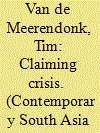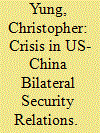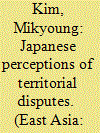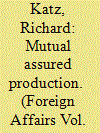| Srl | Item |
| 1 |
ID:
176581


|
|
|
|
|
| Summary/Abstract |
This article discusses local expressions of crisis in Beed district, central Maharashtra. Both in public and academic discourse crisis has become the term of choice for the many structural deficiencies which make agriculture an increasingly precarious livelihood in India. While most voices subscribe to the explanation that the current state of distress can be attributed to the unprofitability of agriculture, a wide range of structural explanations are suggested as to why this might be the case. Consequently, in some debates agricultural crisis runs the risk of moving the experiences, agency and postionalities of those imagined to be living through its consequences to the background. This paper counterbalances such causal explanations by empirically delving into the imaginaries of agricultural crisis as they are articulated, negotiated and employed by farmers in Maharashtra. Based on twelve months of ethnographic research, the paper examines how ideas of crisis are entangled with colloquial understandings by taking experiences of ‘tension’, an Anglicised term used to express feelings akin to stress, as object of inquiry. I argue that by claiming crisis through invoking feelings of tension farmers mobilise a plurality of meanings, narratives and moral evaluations about what is wrong with agriculture in this part of India.
|
|
|
|
|
|
|
|
|
|
|
|
|
|
|
|
| 2 |
ID:
177644


|
|
|
|
|
| Summary/Abstract |
Although the US and Chinese security relationship has been
tense for over three decades, the last three years has seen it
slide into acute crisis. The two countries are in a full-blown
security dilemma, going after each other’s “core interests,”
using their alliances and partnerships to attempt to weaken
or restrain the other, and pushing aside confidence-building measures designed to help manage the competitive
relationship. Before deriving new policy measures that can
foster habits of cooperation between the two countries, the
United States and China must create a new strategic consensus around which the bilateral security relationship can be
defined
|
|
|
|
|
|
|
|
|
|
|
|
|
|
|
|
| 3 |
ID:
145142


|
|
|
|
|
| Summary/Abstract |
This article examines the causal associations between domestic Japan’s socio-psychological indices and people’s perceptions toward territorial disputes with China and South Korea. The triangulation analyses do not support most of the hypotheses except the explanatory variables of age, level of educational attainment, and Japan’s future projection: The higher the age group, the stronger the territorial sovereignty conviction; the higher the level of education, the weaker the support for the Japanese government’s hawkish policy; and the more pessimistic the future confidence of Japan, the bigger the threat perception of China. The causality could be established only when the probability level was relaxed from 0.05 to 0.10. This research finds a weak overall causal association between domestic state of affairs and territorial perceptions. The public opinion on territorial claims remains more or less the same largely independent of domestic socio-economic conditions. This observation leads to a call to revise the conventional conflict cycle theory (i.e., status quo > provocation > rise of tension > conflict relaxation) in order to reflect more of simultaneous and interactive nature of inter-state conflict (i.e., action [tension/status quo/reconciliation] > reaction [tension/status quo/reconciliation]). The intra-state affairs have become more vulnerable to unexpected and hard-to-control contingencies which defy the procedural progression of conflict management. This implies that the elites can no longer monopolize the decision on foreign affairs.
|
|
|
|
|
|
|
|
|
|
|
|
|
|
|
|
| 4 |
ID:
120798


|
|
|
|
|
| Publication |
2013.
|
| Summary/Abstract |
Tensions between China and Japan are rising, but an economic version of mutual deterrence is preserving the uneasy status quo. Put simply, China needs to buy Japanese products as much as Japan needs to sell them.
|
|
|
|
|
|
|
|
|
|
|
|
|
|
|
|